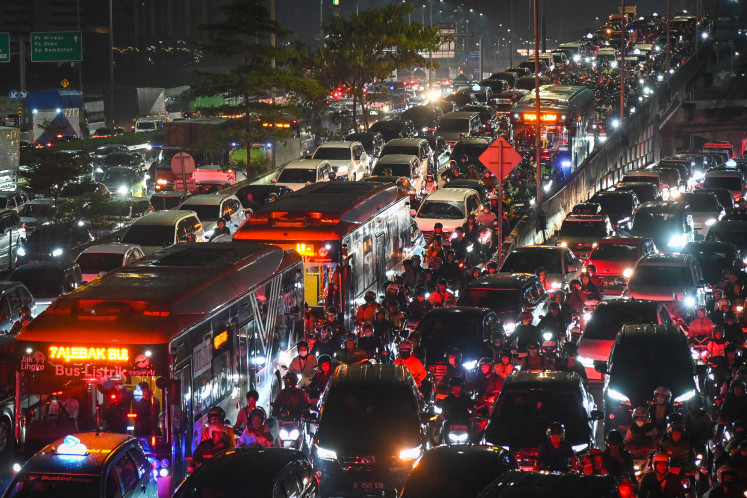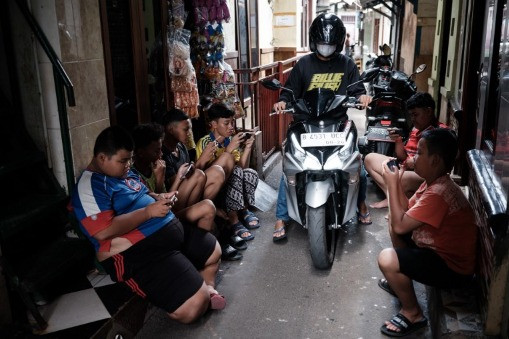Popular Reads
Top Results
Can't find what you're looking for?
View all search resultsPopular Reads
Top Results
Can't find what you're looking for?
View all search resultsQaisra Shahraz: A voice for the struggle of women everywhere
An author following the path of Jane Austen and George Elliott, telling the story of women, their struggles and rights.
Change text size
Gift Premium Articles
to Anyone
B
eing lucky enough to pursue her dreams of writing that she had since she was 15 years old, 59-year-old Pakistani-British author Qaisra Shahraz weaves a literary world that is incredibly relevant and connected with female struggles across all cultures in which they would be treated unequally.
Shahraz’s stories reflect the effects of invisible, sometimes unnecessary barriers that human beings tend to build. The issues of inequality, feminism and the empowerment of Muslim women feature heavily in her works, as well as the need to bring people together in harmony.
Her books — 2002’s The Holy Woman, 2007’s Typhoon, 2013’s Revolt and her most recent book, Train to Krakow — as well as dozens of short stories she has written for various publications as a freelance journalist, have earned her the distinction of being one of the most influential women in her hometown of Manchester, United Kingdom, and made her an indirect advocate for women’s rights.
As a Muslim living in a Western country, and having been raised there since the age of 9, she acknowledges that each woman has their own struggles in basically trying to navigate their lives in different societies.
In the UK, women are very much free to dress and go about their daily activities as they please without the burden of oppressive laws. But she explains that the impression many Western countries have toward Muslim women tends to be demeaning. Demeaning in the sense that the religion does not allow women freedom of any kind.
“There’s a mythical view that’s been maintained [in the West] that sees all Muslim women as being oppressed. They think that Muslim women wear veils and headscarves because they have to. In reality, women wear these as a matter of choice. It’s not a sign that we’re oppressed by the religion itself,” she said passionately.
Power of words: Author Qaisra Shahraz (right) and moderator Christian Putra speak during a meet and greet event at the Kinokuniya Bookstore in the Plaza Senayan mall in Central Jakarta. (Mizan Publishing House/File)Her short story A Pair of Jeans, from her 2013 short story collection A Pair of Jeans and Other Stories explores this very topic of victimization and the harsher judgments that Muslim women are subjected to regarding what they choose to wear. Shahraz argues that oppression might be the case in some extreme examples such as Iran, Afghanistan and Saudi Arabia, where the West tends to get their perceptions from.
“But if you compare it with Muslim countries such as Indonesia, that is definitely not the case. I mean in Indonesia, women even have the freedom to ride motorcycles on their own! Not even the UK has that kind of freedom. The point is to stop victimizing us. Stop categorizing us simply from the clothes we wear,” the author said.
Aside from victimization, Islam also tends to be perceived negatively by many Caucasian countries as a religion of war. This perception has affected women like Shahraz in her home country of the UK, where Islamic extremist terror attacks have tragically become frequent in recent times.
This, therefore, adds another reluctant battle for Muslim women like her, who she describes as being stuck between a rock and a hard place.
“I’m sandwiched between two monsters: Islamic extremism and Islamophobia. I therefore have to defend my faith all the time because my faith is the only one that they refer to by name in attaching it with the word ‘terrorist’.”
“Sometimes I have to remind everyone that extremism and terrorism exists in all other religions, but they never get called out. So why the singling out?” she said.
The least she feels she can do as a writer is to see her position as a platform to speak up for Muslim women worldwide.
“I get reminded a lot that my position as a renowned author goes beyond the fame and recognition. It comes with responsibility as well to utilize what I have as a platform for what’s right,” Shahraz said.
For one, her reach has significantly affected Indonesian readers, as her book The Holy Woman became a bestseller in Indonesia when it was first released.
Her visit to Indonesia also included an appearance at the Ubud Writers and Readers Festival 2017, which ran until Sunday. Prior to the event, she also visited Bandung in West Java as part of her pre-festival trip.

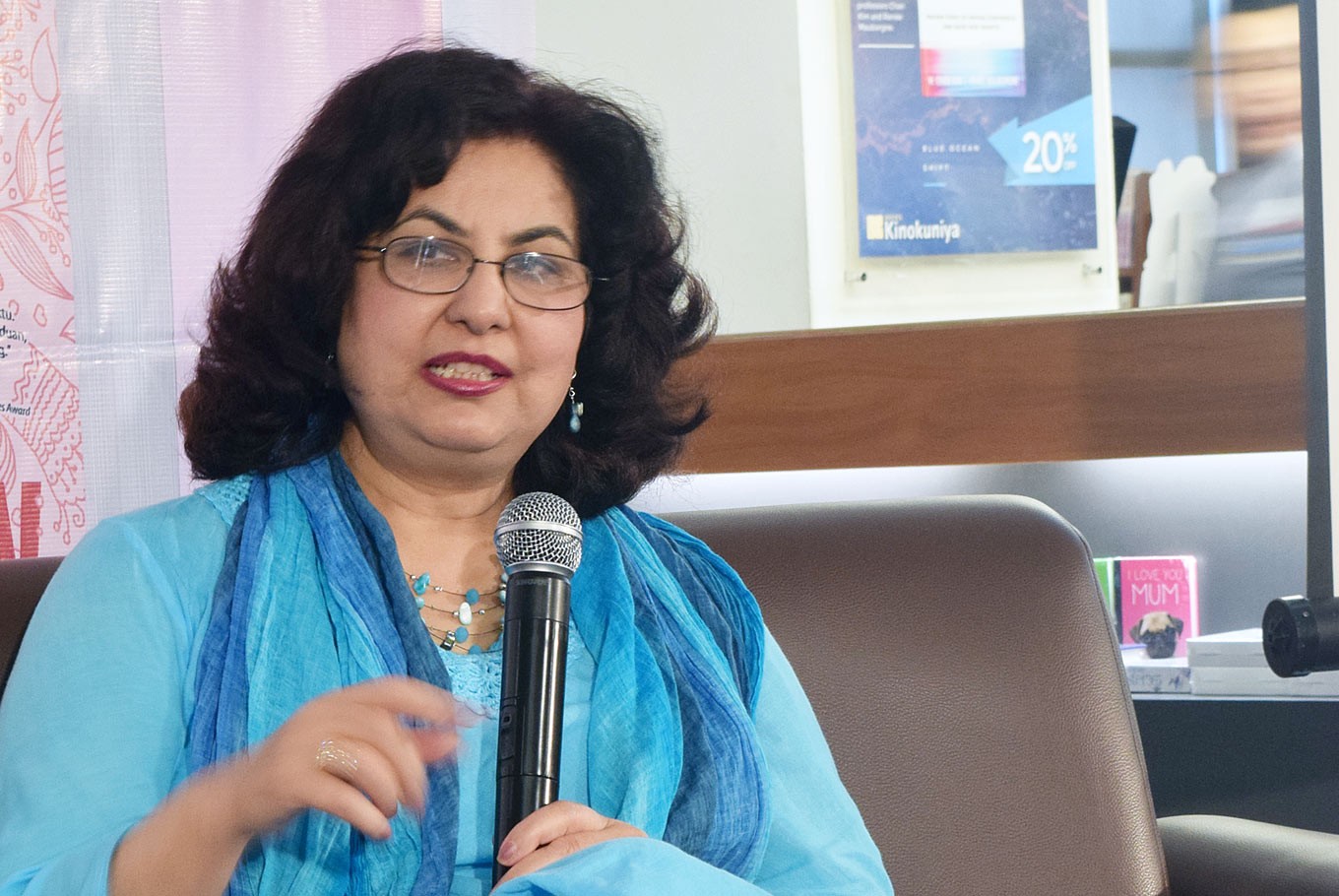


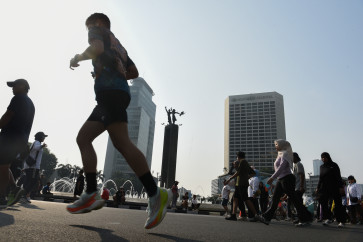

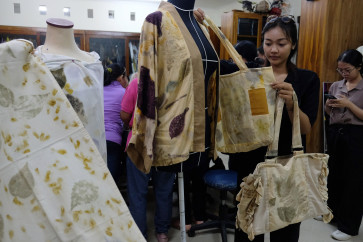


![Let it out: Japanese rocker Hyde holds a solo concert, billed as the Hyde [Inside] Live 2025 World Tour in Jakarta, on Nov. 1, 2025, at Tennis Indoor Senayan in Central Jakarta.
(Courtesy of Sound Rhythm and Mataloka Live)](https://img.jakpost.net/c/2025/11/05/2025_11_05_168574_1762306300._medium.jpg)
